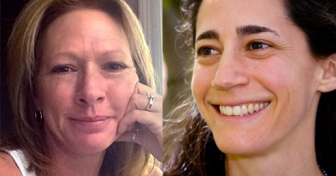
Grace Bauer (left) and Sarah Bryer
There’s a new summer television show we hope no one is watching. Country Music Television’s new reality television series, “My Dysfunctional Family,” is an attempt to help families in crisis with intervention from “family fixer” Dave Vitali.
In the premiere episode (101), “Turning a Blind Eye,” Vitali visits a single mother and her three children who need a “wake up call” to get their family back on track. The kids struggle with alcohol and substance abuse.
In response to 16-year-old Justus’ drug use, Vitali sets out to show him where his future is heading if he continues the same behavior. Vitali’s solution? Put him in jail.
In collaboration with the Chesterfield County Sheriff’s Office in Virginia, Justus was arrested on mock charges of marijuana possession and sent to the Chesterfield County Jail. His mother was also arrested for contributing to the delinquency of a minor.
Justus was processed, given a uniform and locked in a cell surrounded by “inmates” who were instructed to act aggressively. Unbeknownst to Justus, he was in a recently renovated part of the jail that was empty.
Spoiler alert: We know how this is going to end.
Similar to “Beyond ‘Scared Straight,’” a disturbing series on the A&E television network that seeks to scare troubled youth “straight” (even though researchers have found the approach ineffective and can even increase crime), CMT’s new show (which has aired five episodes so far) uses a mock tough-on-crime approach that supposedly turns lives around. Trouble is, that may work well as a tactic for reality shows, but in real life, tough on crime policies have negatively impacted hundreds of thousands of kids in the United States.
Quite simply, jail is the last place where Justus should be. Even though the majority of incarcerated young people are detained for non-violent offenses that pose no threat to public safety, incarceration only increases the likelihood that youth will offend again. Worse, it exposes youth to violence and increases their risk for suicide. Meanwhile, communities are made less safe, and taxpayers foot the bill to incarcerate youth that can exceed $100,000 per youth in some states.
That’s why states across the country have reversed their approach in favor of smart-on-crime juvenile justice policies that focus on rehabilitation, not punishment. Today, states have recognized that youth have an immense capacity for change that reflects a greater understanding of the teenage brain and adolescent development. With broad bi-partisan support, policymakers have invested in more cost-effective evidenced-based solutions that keep youth connected to their families and communities as they develop new skills to adjust their behavior.
Encouragingly, youth arrests have decreased nationwide — youth violent crime is at a 30-year low – and youth incarceration has declined by more than 40 percent from a record high in 2000.
As parents ourselves, we know what it’s like to need a little support to help raise kids. But if we as a nation want to ensure better outcomes for our kids and ensure safer neighborhoods for everyone, it’s important that we don’t rely on incarceration or prosecute parents for the behavior of their children. Rather, we need to create opportunities to hold youth accountable in the community, while also creating opportunities for rehabilitation. Let’s not be the ones who turn a blind eye to what’s best for our kids — or promote jail time on air as the best way to do right by them.
Sarah Bryer directs the National Juvenile Justice Network. Grace Bauer is Executive Director & Co-Founder of Justice for Families.

























